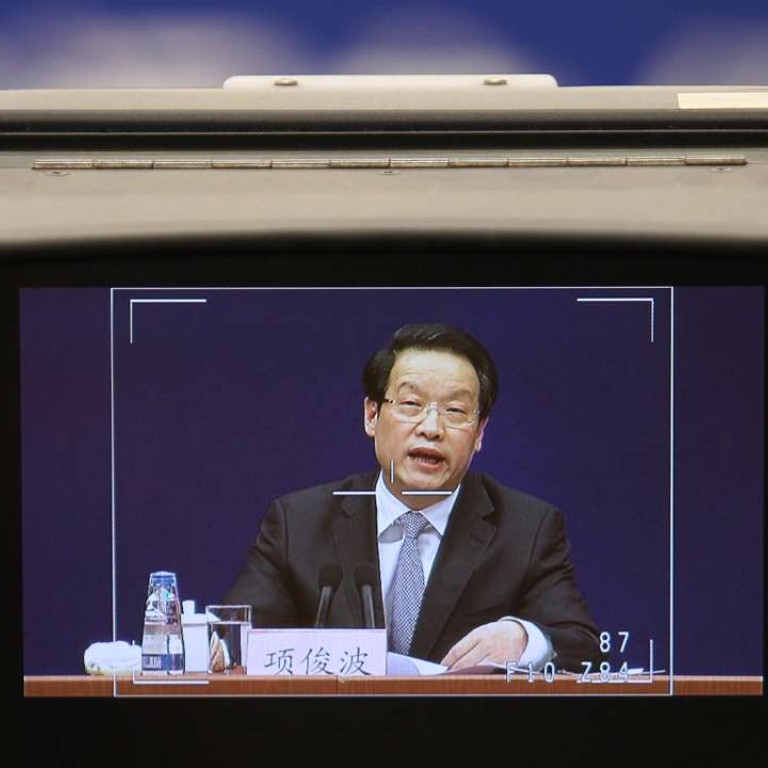
China’s insurance regulator chimes in with war of words on illicit funds
The CIRC says it will impose the most severe punishments on insurers that breaches its rules, suspend their businesses or revoke their licenses
China’s insurance regulator has added his voice to a government crackdown on corporate raiders and their illicit funding sources, using unusually colourful language to paint the dismal picture of capitalism run amok in the world’s second-largest economy.
The regulator “will never allow the insurance industry to be turned into a rich boys’ club,” or let it become the sanctuary or war chest of corporate raiders, buyout artists and so-called “financial crocs,” said Xiang Junbo, chairman of the China Insurance Regulatory Commission, during a Beijing press conference.
The regulator, whose role is to license insurers, oversee their products and sales practices, said it will impose the most severe punishment on companies that breach its rules, suspend their businesses or revoke their licenses.
Xiang’s performance this week was an unusual one for a career auditor and banker who’s more used to legalese and the insipid language of finance and regulations. He’s borrowing the phrase “financial crocs” coined by his fellow regulator Liu Shiyu, head of the securities regulatory watchdog, who described corporate raiders as “demons that are sucking the lifeblood” of the investing public.
Speaking the same language underscores the collaboration between the insurance and securities industries, where funds raised by life insurers in high-yielding asset management products have often found their way into outsize acquisitions, hostile takeovers and aggressive raids on companies in China and Hong Kong.
Chinese insurers invested 1.89 trillion yuan (US$275 billion) in mutual funds and equities as of November, having up to 12 per cent of their total assets stuck in one of the world’s worst-performing stock markets of 2016. As much as 1.2 trillion yuan of their investments are still outstanding, equivalent to 2.6 per cent of the total tradable value of China’s yuan-denominated A shares market.
With the two regulators on the same page, the number of takeover deals and acquisitions in China had ground to a halt. Several insurers had been reprimanded after they’d been found to have been used by their owners as war chests and slush funds.
“A few insurance companies are making major investments into listed companies, or even eying hostile takeovers with concerted parties, raising concerns among listed companies and entrepreneurs, while misleading small investors,” Xiang’s deputy Chen Wenhui said at the same press conference. “Some are taking advantage of small investors by making short-term speculation on equities.”
China Evergrande Insurance, Foresea Life Insurance and Huaxia Life Insurance were the subjects of investigations since December because of the non-compliance of their insurance products, the authenticity of their financial figures and the use of their insurance premiums.
Evergrande Insurance, a unit controlled by real estate magnate Hui Ka-yan, helped fund his accumulation of shares in China Vanke Co.
Foresea funded tycoon Yao Zhenhua’s hostile takeover attempt on Vanke.
Sino Life Insurance was put under investigation after its chairman Zhang Jun was detained for corruption-related charges.


